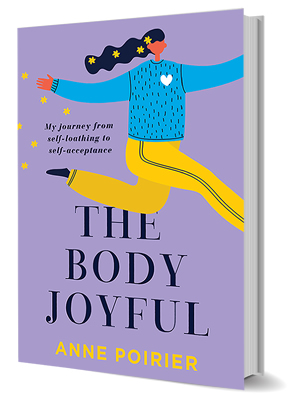Have you ever stopped to ask yourself if you truly accept yourself for who you are? Perceived flaws and all? As it turns out, your emotional well-being directly correlates with self-acceptance.
With that in mind, let’s talk about what self-acceptance looks like and how we can work to improve it.
What is self-acceptance?
Think of the person you love most in the world.
Sure, they might do things that get on your nerves once in a while, but chances are, you fully accept them for who they are. Their positive and negative aspects are part of the deal, and you accept and love them just as they are.
Now, if you turn the tables and apply that same accepting energy to yourself, this is what self-acceptance looks like.
It’s also important to think of self-acceptance as something related to your present state. It means accepting yourself as you are at this very moment. It doesn’t mean, “I would love myself more if I lost ten pounds,” or “I accepted myself when I was 20 years younger.”
Self-acceptance vs. self-esteem
Another important determination is the difference between self-acceptance and self-esteem. The two are often conflated with one another but they have some important differences.
Your self-esteem is an evaluation of your own worth. High self-esteem means you see yourself as valuable, worthwhile, and competent. Those with low self-esteem might think they’re unimportant, untalented, and not worth spending time on.
The difference between self-esteem and self-acceptance is the ability to accept even the parts of ourselves that aren’t “esteem-able.” But there are also ways these two are connected. Often, the parts of ourselves we don’t accept can lead to lower self-esteem.
There’s something to be said for always trying to improve. But this doesn’t mean we can’t be accepting and loving ourselves today, just as we are.
After all, improving your self-acceptance is a worthwhile endeavor that can have significant benefits to your emotional well-being.
Self-acceptance and emotional well-being
Interestingly, improving your self-acceptance and self-esteem are effective tools for enhancing cognitive interventions. In fact, studies have shown self-acceptance is “closely associated with general psychological well-being and to be more helpful when undertaking clinical work for general psychological problems.”
Self-esteem, on the other hand, is more associated with effect, and higher levels of self-esteem tend to indicate lower levels of depression.
These studies aren’t necessarily surprising. Imagine the toll it takes on your emotional well-being if you’re in a constant state of disapproval for yourself.
So, what can you do to work on accepting yourself just as you are at this moment? I’ve compiled a list of effective tools for improving your self-acceptance to get you on the path for better health and emotional well-being.

1. Shift your self-talk
If you struggle with self-acceptance, chances are your self-talk leans toward the negative side. Over time, you begin to believe the things you tell yourself. You’er negative, unaccepting view of yourself begins to impact how you conduct your life.
If you don’t accept yourself, your self-talk proves to you that no one else will accept you either.
In this post, I share three steps to more positive self-talk. Each of these steps comes down to improving your awareness. You might not even be aware of how your negative self-talk affects your level of self-acceptance. But with just a few minutes of work each day, you can begin to see major improvements.
2. Try on Body Neutrality
Just as self-acceptance and self-esteem are often conflated, so too are body neutrality and body positivity.
In literal terms, body neutrality means “not supporting the hatred of our vessel (our physical structure) or not having a strong feeling one way or the other about our bodies”. Body positivity, on the other hand, is about feeling positive about our bodies and ourselves.
Getting to the point of looking in the mirror and thinking to yourself, “YES! I love my body! Every inch of it!” might seem like a completely unattainable goal. Instead, work toward ACCEPTING your body.
Body neutrality can be a space where you can find some peace. When you take some pressure off yourself, you can simultaneously lower your stress level and watch your emotional well-being improve.
Would you like to explore the concept of body neutrality further? Take a look at this post where I discuss 5 steps to get you there.
3. Cut the comparisons
If you struggle with self-acceptance, there’s a good chance you often find yourself comparing yourself to others.
Maybe something like this sounds familiar, “If I only had her body, I’d be happy.”
But this constant state of comparing yourself to others, it means you determine your personal and social worth based on how you perceive you stack up against others. You’re fighting a losing battle with yourself. This drive to try and be like others stops you from authentically being your happiest, healthiest, best self.
If you’re only comparing yourself to other people, you’ll never be able to truly accept yourself. Instead, shift your perspective onto how you can be YOUR best––not someone else’s best.
Don’t miss these 5 steps for stopping the constant comparisons.
4. Prioritize your own self-care
Finally, prioritizing self-care can go a long way to bolstering your self-acceptance. When you devote time to caring for yourself, you’re telling yourself you’re worth it (which you are!). This is an active step toward showing yourself the love and acceptance you so freely give others.
And self-care is something near and dear to my heart. I’ve seen the impact it can have on self-esteem, self-acceptance, and emotional well-being. I’ve compiled several resources for developing and expanding your self-care practice on the blog. To start, check out why self-care is the best new medicine.
Help on the path to self-acceptance
Self-acceptance won’t happen overnight. It takes work and a drastic shift in your mindset and perspective. But it – and you – are a worthy cause. It’s entirely possible to improve your self-acceptance and accept yourself at this very moment for exactly who you are. And I’m here to support. Click here for a complimentary Body Joyful Breakthrough session.
If you enjoyed this article, you won’t want to miss these either:
Benefits to a Playful Approach to Exercise
Journaling to Boost Your Mood
5 Ways to Take Back Control (Even in Uncertain Times)


